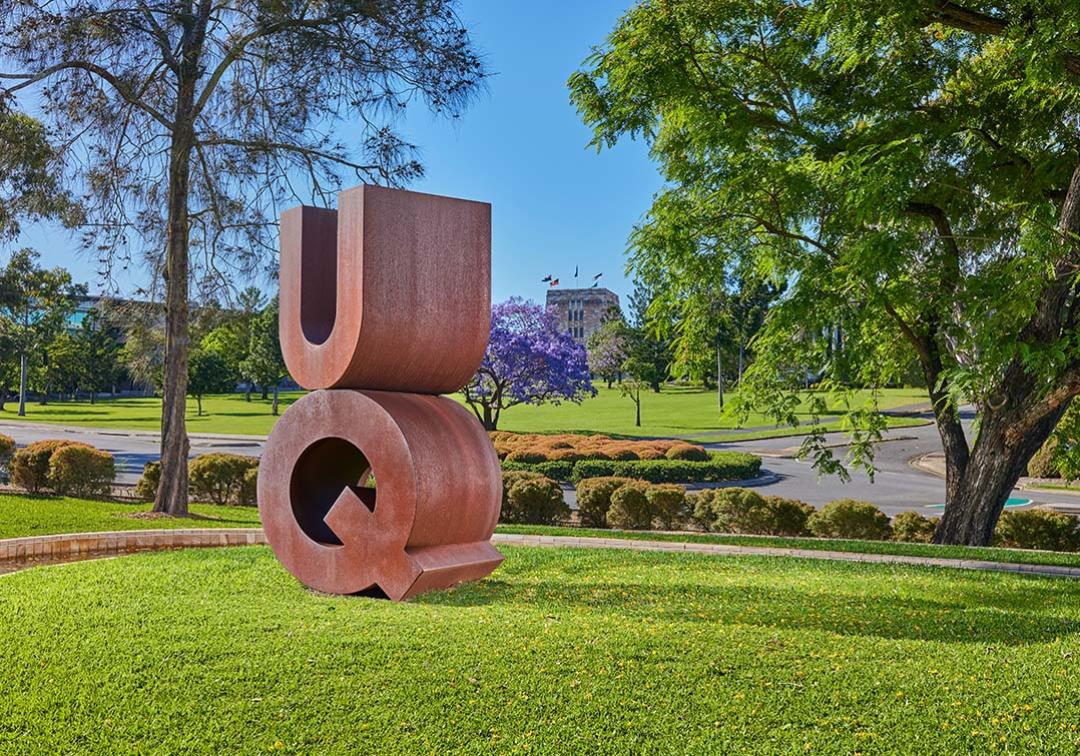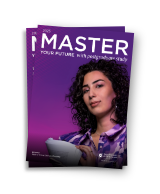
Graduate Diploma in Arts in Translation and Interpreting
Overview
Gain industry-focussed training in community and business translation and interpreting with the Graduate Diploma in Arts in Translation and Interpreting.
Choose to specialise in Chinese-English or Japanese-English translating and interpreting during this comprehensive one-year (or part-time equivalent) program.
Particular emphasis will be placed on the harnessing of digital technological trends in both translation and interpreting, thereby equipping graduates with the skills to work in an increasingly globalised and digitalised translation and interpreting market.
The translation skills you will gain include translation memory (TM), computer-assisted translation (CAT) tools, machine translation (MT) and post editing.
The interpreting skills you will gain include memory skills, logical analysis, note-taking, dialogue interpreting while learning about the importance of cross-cultural and non-verbal communication.
This program will prepare you to enter the globalised market as a professional translator and interpreter with the opportunity to work across a variety of settings including legal, government, health, business and community.
NAATI certification
The program is endorsed by National Accreditation Authority for Translators and Interpreters (NAATI).
Program highlights
- Specialise in Japanese or Chinese interpreting
- Learn in our world-class Televic interpreting facility. Televic is used in major international organisations such as the United Nations
Fields of study
Tailor your studies to suit your goals. This program offers these options:
- Chinese
- Japanese
How you'll learn
Your learning experiences are designed to best suit the learning outcomes of the courses you choose.
- Lectures
- Tutorials
- Work placements
- Online study
- Research experience
- Peer-assisted study sessions
- Workshops
What you'll study
At UQ, degrees are called 'programs' and subjects are called 'courses'. Here's a sample of the courses you could study in this program:
- Theoretical Studies in Translation and Interpreting
- Professional Skills for Translators and Interpreters
- Translation and Interpreting in Community Settings
- Translation in a Globalised Marketplace
Career possibilities
Postgraduate study can take you anywhere. Depending on which field you choose, here are some of the careers you could be on your way to:
- In-house translator/interpreter
- Freelance translator/interpreter
- International business translator/interpreter
- English teacher
- Translation project manager
- Tourism and hospitality interpreter/translator
Next steps after graduation
As a graduate you’ll be eligible to apply to sit relevant NAATI Certificates test without satisfying any other prerequisites.
Events
See all events
7 April - 22 September
Beginner Language Bootcamp at UQ IML

7 July
Shakespeare's Macbeth: UQ Centre for Western Civilisation 2025 Winter School
Stories
See all stories
Uni life
Why choose UQ for your Bachelor of Arts?
4-minute read
Stories
See all stories
Uni life
Why choose UQ for your Bachelor of Arts?
4-minute read
Entry requirements
Entry requirements
To be eligible for entry, you'll need:
- a bachelor's degree (or equivalent) in any discipline, or
- to have completed post-secondary studies, plus 2 years full-time, equivalent relevant work experience (see below), and
- proficiency in spoken and written Chinese and English for the Chinese field of study, or
- proficiency in spoken and written Japanese and English for the Japanese field of study
You must have a grade point average (GPA) of 4.5 on a 7-point scale in your previous qualification.
Relevant work experience includes Japanese-English interpreting and translation or Chinese-English interpreting and translation or any other profession where the applicant has built a portfolio demonstrating their oral and written communication expertise in English and Japanese or Chinese. Two referee reports with contact details and CV are required. Applications on the basis of post-secondary study and/or work experience will be individually assessed.
If required, you must have completed an aptitude test to the standard set by the Executive Dean. The aptitude test is not required for native speakers of the language of study (Chinese-Mandarin or Japanese) who reside in a country where the language is spoken (i.e. Mainland China, Taiwan or Japan). The aptitude test may be required for all other applicants, including domestic students. Further information about the aptitude test can be found on the School of Languages and Cultures website .
- a bachelor's degree (or equivalent) in any discipline, or
- to have completed post-secondary studies, plus 2 years full-time, equivalent relevant work experience (see below), and
- proficiency in spoken and written Chinese and English for the Chinese field of study, or
- proficiency in spoken and written Japanese and English for the Japanese field of study
You must have a grade point average (GPA) of 4.5 on a 7-point scale in your previous qualification.
Relevant work experience includes Japanese-English interpreting and translation or Chinese-English interpreting and translation or any other profession where the applicant has built a portfolio demonstrating their oral and written communication expertise in English and Japanese or Chinese. Two referee reports with contact details and CV are required. Applications on the basis of post-secondary study and/or work experience will be individually assessed.
If required, you must have completed an aptitude test to the standard set by the Executive Dean. The aptitude test is not required for native speakers of the language of study (Chinese-Mandarin or Japanese) who reside in a country where the language is spoken (i.e. Mainland China, Taiwan or Japan). The aptitude test may be required for all other applicants, including domestic students. Further information about the aptitude test can be found on the School of Languages and Cultures website .
English language requirements
IELTS overall 6.5; reading 6; writing 6; speaking 6; listening 6. For other English Language Proficiency Tests and Scores approved for UQ
TOEFL iBT (including Paper Edition) - Overall 87, listening 19, reading 19, writing 21 and speaking 19.
PTE Academic - Overall Score of 64 and 60 in all sub bands.
BE - A minimum overall grade of 4 plus a minimum grade of C in all macro skills.
CES - Overall 176 and 169 in all sub bands.
OET is not accepted.
There are other ways to meet the English language requirements. For some programs, additional conditions apply.
Student visas
International students who are accepted into full-time study in the Graduate Diploma in Arts in Translation and Interpreting are eligible to apply for an Australian student visa (subclass 500).
There are a number of requirements you must satisfy before a visa is granted, including the Genuine Student (GS) requirement.
Need help meeting the entry requirements?
Fields of study
Fields of study
Tailor your studies to suit your goals. This program offers these options:
This 1-year program offers industry-focused training in community translation and interpreting as well as training for in-demand translation and interpreting specialisations in the health and legal domains. You will also be trained in simultaneous interpreting for international business and conference settings, opening the path to employment overseas.
Courses with tutorials will be conducted in Chinese with native Chinese speaking academics. You will acquire skills in computer-assisted translation tools, post-editing for machine translation, digital terminology management, and bidule and relay interpreting.
Note: the information on the Program and course requirements page won't show information tailored to your chosen field of study.
This 1-year program offers industry-focused training in community translation and interpreting as well as training for in-demand translation and interpreting specialisations in the health and legal domains. You will also be trained in simultaneous interpreting for international business and conference settings, opening the path to employment overseas.
Courses with tutorials will be conducted in Japanese with native Japanese speaking academics. You will acquire skills in computer-assisted translation tools, post-editing for machine translation, digital terminology management, and bidule and relay interpreting.
Note: the information on the Program and course requirements page won't show information tailored to your chosen field of study.
Fields of study
Tailor your studies to suit your goals. This program offers these options:
This 1-year program offers industry-focused training in community translation and interpreting as well as training for in-demand translation and interpreting specialisations in the health and legal domains. You will also be trained in simultaneous interpreting for international business and conference settings, opening the path to employment overseas.
Courses with tutorials will be conducted in Chinese with native Chinese speaking academics. You will acquire skills in computer-assisted translation tools, post-editing for machine translation, digital terminology management, and bidule and relay interpreting.
Note: the information on the Program and course requirements page won't show information tailored to your chosen field of study.
This 1-year program offers industry-focused training in community translation and interpreting as well as training for in-demand translation and interpreting specialisations in the health and legal domains. You will also be trained in simultaneous interpreting for international business and conference settings, opening the path to employment overseas.
Courses with tutorials will be conducted in Japanese with native Japanese speaking academics. You will acquire skills in computer-assisted translation tools, post-editing for machine translation, digital terminology management, and bidule and relay interpreting.
Note: the information on the Program and course requirements page won't show information tailored to your chosen field of study.
Fees and Scholarships
Indicative annual fee
Approximate yearly cost of tuition (16 units). Your fees will vary according to your selected courses and study load. Fees are reviewed each year and may increase.
$4,628
2025
$4,628
2025
Approximate yearly cost of full-time tuition (16 units). Your fees will vary according to your study load. Fees are reviewed each year and may increase.
AUD $43,200
2025
AUD $43,200
2025
Government assistance
Financial aid
As an international student, you might be eligible for financial aid – either from your home country, or from the Australian Government.
HECS-HELP
Domestic places in the Graduate Diploma in Arts in Translation and Interpreting are Commonwealth supported. This means the cost of your education is shared between you and the Australian Government.
Instead of tuition fees, Commonwealth supported students pay what are called student contribution amounts.
HECS-HELP is an Australian Government loan scheme to assist eligible students with the cost of their student contribution amounts.
Centrelink support
The Australian Government offers a number of income-support payments to eligible Australian university students.
Scholarships
You may be eligible for more than 100 scholarships, including:
How to apply
Applying online
All international applications should be submitted to UQ. If you prefer, you can use an approved UQ agent in your country.
The program code for the Graduate Diploma in Arts in Translation and Interpreting is 5751.
Find out more about applying for postgraduate coursework study
Applying online
All domestic applications should be submitted to UQ.
The program code for the Graduate Diploma in Arts in Translation and Interpreting is 5751.
Find out more about applying for postgraduate coursework study
Important dates
The closing date for this program is:
- To commence study in Semester 2 - June 30 of the year of commencement.
To learn more about UQ dates, including semester start dates, view the Academic Calendar.
Important dates
The closing date for this program is:
- To commence study in Semester 2 - June 30 of the year of commencement.
To learn more about UQ dates, including semester start dates, view the Academic Calendar.
Aboriginal and Torres Strait Islander applicants
For support with applying – or if you have any questions about university life – get in touch with our Aboriginal and Torres Strait Islander Studies Unit.
Explore other programs
Express yourself. And your interest.
They say choosing a degree is hard, which is why we've made it easy. Register your interest and we'll send you everything you need to know about applying to UQ.




